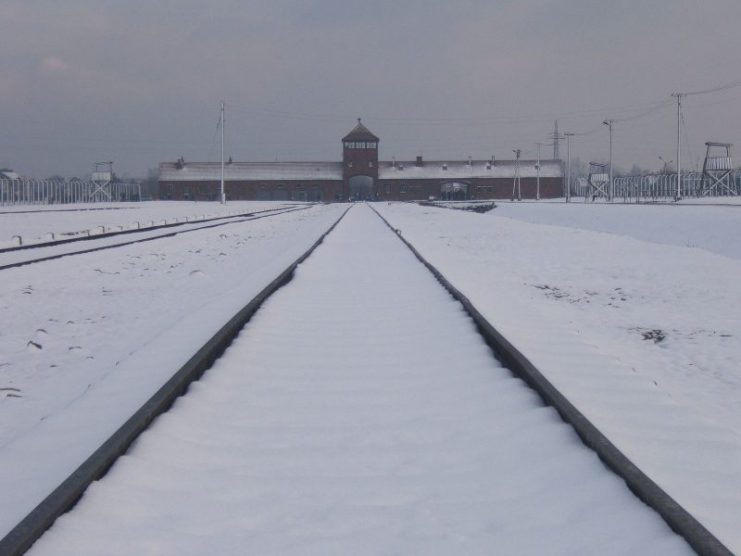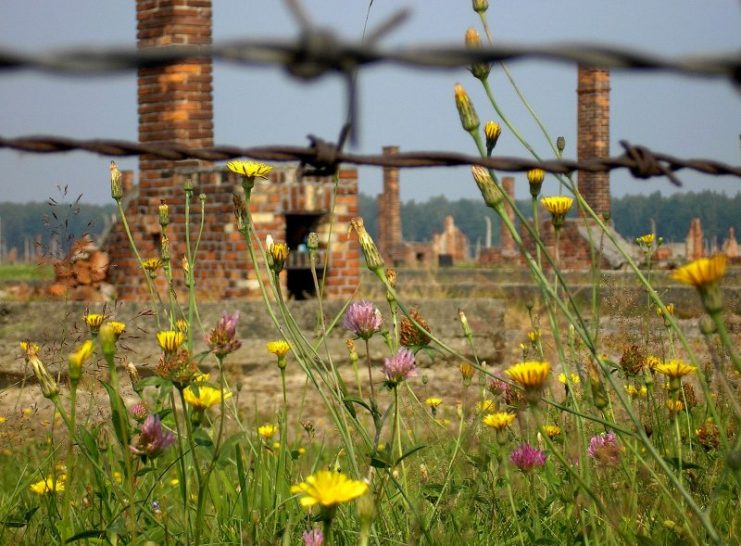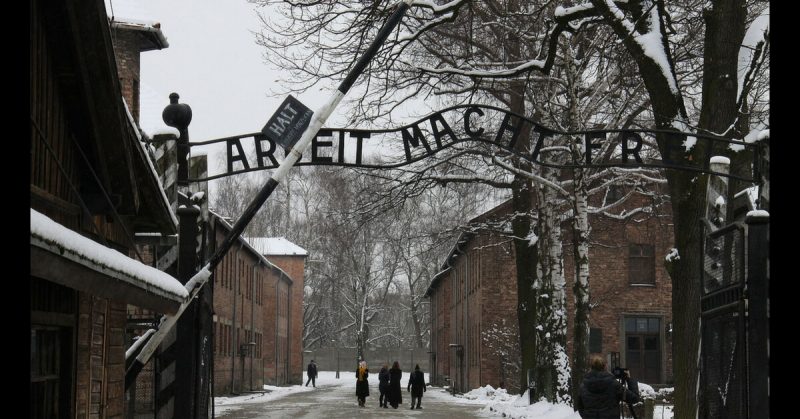Oskar Groening was tried in 2015 for his involvement at Auschwitz and convicted to four years in prison as an accomplice in the murder of 300,000 Jewish people in the Holocaust.
He appealed the sentence on the grounds that his health meant he was too frail to survive prison. In November 2017, a court in Celle, Northern Germany, ruled that Groening’s rights are not being violated by sentencing him to a prison term and that his health needs can be taken care of in jail.
Historian Andrew Nagorski said that having Groening spend any time in jail would be a “breakthrough” in that it would show that no one involved in WWII atrocities is beyond the law, no matter how long they live.
Due to the length of time since WWII, this is likely to be one of the last, if not the very last, of the major trials involving people directly responsible for the Holocaust.
Oskar Groening, now 96 years old, was once a 21-year-old man with an important job.
Born in 1921 in Lower Saxony, Germany, Groening was raised by his father after his mother died when he was just four years old. His father was a member of the Stahlhelm paramilitary group in part because of his outrage at the way the country was treated after World War I. His anger only worsened when his textile business went under in 1929.

Young Oskar joined the Stahlhelm Youth in the early 1930s and then joined the Hitler Youth once that organization was established. He has admitted to participating in book burnings arranged by the Nazi party to destroy books written by Jewish and other “degenerate” races.
When he turned 17, he began training as a bank clerk. When World War II began, he decided to join an elite military unit like his grandfather had before him.
Thus, in 1942, he arrived in Auschwitz as a member of the Waffen SS.
His career in Auschwitz lasted about two years. In that time, he is accused of being an accessory to the murder of 300,000 Jews.
Groening’s job was to count the money taken from the Jewish prisoners and send it to SS headquarters in Berlin. In addition, he was responsible for the luggage the prisoners brought with them to the concentration camp.
After the war, he lived a middle-class lifestyle in Lueneburg Heath in his birthplace of Lower Saxony. He worked at a glass-making factory until his retirement.

Observers such as Nazi hunter Efraim Zuroff say that the fact he has spoken publicly about his experiences in the camp makes this case particularly important. In 2005, in response to Holocaust deniers, he spoke out in an interview with the BBC. In that interview, he says, “I saw the gas chambers. I saw the crematoria.” The interview was broadcast as part of the BBC documentary, “Auschwitz: the Nazis and the ‘Final Solution.’”
He also talked about witnessing the murder of a baby by an SS guard and the “horrified” feeling he had about the way the people were treated in the camp.
Still, he says that he believed that murdering the Jews was the right thing to do at the time. He believed the Nazi propaganda that the Jews were involved in a massive conspiracy against the Germans.
He also believed that he was innocent of the murders of the prisoners, calling his role “a small cog in the gears.”
Historian Laurence Rees says he finds Groening’s description of his time at Auschwitz strange because Groening fails to take responsibility for his actions. Instead, he hides behind his family’s beliefs and Nazi propaganda. Yet, Groening also claims that he was not forced to participate but did his job because he felt that the Holocaust was right – it just no longer seems right today.
